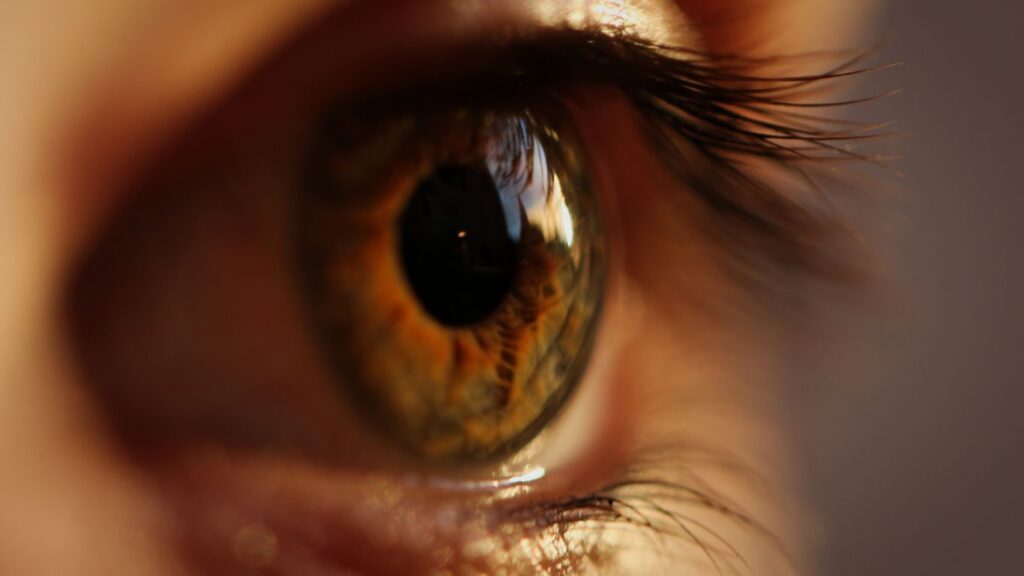In a world where our eyes are constantly engaged, from reading texts on our smartphones to watching movies on large screens, the importance of maintaining good eye health is more significant than ever. Regular eye check-ups are a crucial aspect of health care, yet often overlooked. In this comprehensive guide, we’ll explore the long-term benefits of regular eye examinations, emphasizing why they are essential for a lifetime of good vision and overall health.
Table of contents
The Window to Your Health
Eyes are often referred to as the windows to your health. An eye examination can reveal more than just vision problems; it’s a vital check-up for your overall health. Optometrists and ophthalmologists can detect early signs of systemic conditions like diabetes, high blood pressure, and high cholesterol, long before other symptoms become apparent. We’ll delve into how these health issues can be spotted through your eyes and the importance of early detection.
Prevention and Early Detection of Eye Diseases
Regular eye check-ups play a crucial role in the early detection and prevention of various eye diseases such as glaucoma, cataracts, and macular degeneration. These conditions, if left undiagnosed, can lead to significant vision loss or even blindness. This section will provide insight into how regular screenings can catch these diseases at an early stage when they are most treatable.

Eye Strain in the Digital Age
The digital age has brought about a new set of challenges for our eyes. Digital Eye Strain (DES), also known as Computer Vision Syndrome, affects people who spend long hours in front of screens. Symptoms include headaches, blurred vision, and eye fatigue. In this part, we’ll discuss the importance of regular check-ups in identifying the signs of DES and suggest practical tips for protecting your eyes in the digital world.
Children’s Vision and Development
Vision is a critical aspect of a child’s development, impacting their educational, functional, and social growth. Regular eye exams are essential for early detection and treatment of common pediatric vision issues such as myopia (nearsightedness), hyperopia (farsightedness), astigmatism, and amblyopia (lazy eye). These conditions, if uncorrected, can hinder a child’s ability to learn and interact with their surroundings.
For instance, a child who cannot clearly see the whiteboard may struggle academically, while one who has difficulty focusing on close objects might find reading challenging. Moreover, vision problems can affect physical coordination, essential for sports and playground activities, potentially impacting social interactions and self-esteem.
Early eye check-ups ensure that children have the visual skills necessary for successful educational experiences, proper social development, and a solid foundation for future learning. This proactive approach is key to identifying and addressing vision problems before they significantly impact a child’s life.
The Aging Eye
As we age, our eyes undergo natural changes, making regular eye exams increasingly important. Age-related vision changes can impact daily activities and quality of life. We’ll explore common age-related eye conditions like presbyopia, dry eyes, and floaters, and discuss how regular eye exams can help in managing these conditions effectively.

Lifestyle, Nutrition, and Eye Health
Maintaining a healthy lifestyle and proper nutrition is pivotal for preserving eye health. Research increasingly shows that what we eat and how we live can significantly impact our vision and eye condition. For instance, nutrients such as omega-3 fatty acids, lutein, zinc, and vitamins C and E might help ward off age-related vision issues like macular degeneration. Foods rich in these nutrients include leafy green vegetables, oily fish like salmon and tuna, eggs, nuts, beans, and citrus fruits.
Moreover, lifestyle choices play a crucial role. Regular exercise can reduce the risk of conditions like type 2 diabetes, which is a leading cause of blindness in adults. Smoking cessation is also critical, as smoking increases the risk of cataracts and macular degeneration.
Hydration is another key factor; sufficient fluid intake is essential to maintain moisture in the eyes, preventing dry eye syndrome and other related discomforts. Additionally, protecting eyes from harmful UV rays by wearing sunglasses and using appropriate lighting while reading or working can prevent strain and long-term damage.
In essence, combining a balanced diet rich in eye-friendly nutrients with healthy lifestyle choices creates a strong foundation for maintaining optimal eye health and preventing future vision problems.

Conclusion
Regular eye check-ups are more than just an assessment of your vision; they are a critical component of your overall health maintenance. As we’ve explored, these exams can detect early signs of systemic health issues, prevent and detect eye diseases, address the challenges posed by the digital age, ensure the healthy development of children’s vision, manage age-related eye changes, and guide you towards a lifestyle that supports eye health. Remember, maintaining good eye health is a lifelong journey, and regular eye exams are your best tool for ensuring that your vision remains sharp and your eyes healthy for years to come.
Also read: Eat Your Way to a Longer Life: The Best Foods for Longevity and Age-Defying Health
